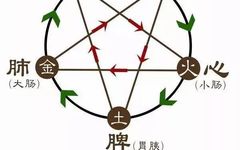Hello everyone, I am Dr. Liu, a Traditional Chinese Medicine (TCM) practitioner.
Today, I will explain the understanding and discussion of the five organs in TCM!
The five organs are all “born with a purpose,” each fulfilling its role. However, the organs are not isolated; they are closely interconnected. As Zhang Zhizhong from the Qing Dynasty stated in “Lüshan Hall Classifications”: “The qi of the five organs is interconnected.” The five organs have an inevitable internal relationship in physiological activities and pathological changes, thus forming a relationship of mutual generation and mutual restraint.
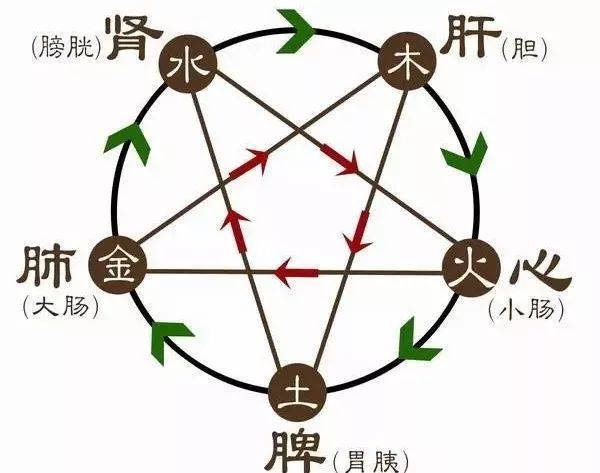
Mutual Generation of the Five Organs
Due to the correspondence of the five elements (Wood, Fire, Earth, Metal, Water) to the five organs (Liver, Heart, Spleen, Lung, Kidney), TCM states that “Wood generates Fire, Fire generates Earth, Earth generates Metal, Metal generates Water, Water generates Wood.” Here, “generate” implies nurturing, promoting, assisting, and supporting. Sometimes, this relationship is referred to as a mother-child relationship, similar to a mother giving birth to a child. For example, Fire generates Earth, where Fire is the mother of Earth; correspondingly, the Heart is the “mother” of the Spleen, as the Heart supports and promotes the function of the Spleen.
If a patient with myocardial infarction collapses in the restroom, one possibility is excessive straining during defecation;
another possibility is overeating. TCM divides qi into Yuan Qi (Original Qi), Zong Qi (Ancestral Qi), Ying Qi (Nutritive Qi), and Wei Qi (Defensive Qi), all emphasizing that a person lives by a breath of qi, and this qi is what sustains life. If one eats too much, the Spleen and Stomach will require more qi to digest the food.
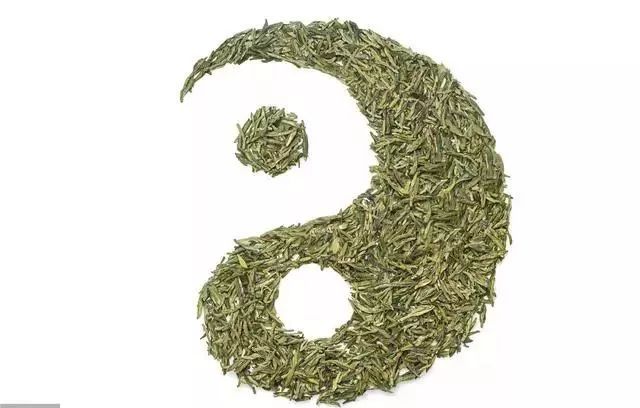
We know that Heart Fire generates Spleen Earth, forming a “mother-child relationship” between the Heart and Spleen. During the digestion of food, if the Spleen and Stomach require more qi, they will “steal qi” from the Heart, a phenomenon known in TCM as “zi dao mu qi” (the child steals qi from the mother), which can lead to insufficient Heart qi and subsequently cause heart disease.
Therefore, patients with heart disease must pay attention to two points: First, avoid constipation; second, it is best to eat until 70-80% full.
In the context of seasonal health, the principle of mutual generation of the five organs is even easier to understand.
For instance, according to TCM, the five organs correspond to the five seasons: Liver corresponds to Spring, Heart to Summer, Spleen to Late Summer, Lung to Autumn, and Kidney to Winter. After Spring comes Summer; Wood generates Fire, meaning the Liver generates the Heart. If the Liver can nourish the blood well in Spring, it can alleviate the heat and excessive Yang energy in Summer, leading to a balance of qi and blood. Similarly, after Autumn comes Winter; Metal generates Water, where the Lung’s clear qi can descend to support the Kidney, laying a good foundation for the storage of Yang energy in Winter.
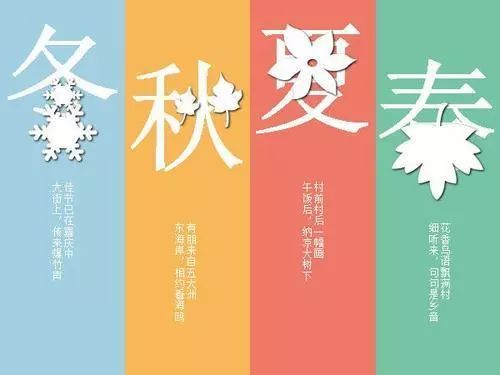
Mutual Restraint of the Five Organs
TCM states that “Wood restrains Earth, Earth restrains Water, Water restrains Fire, Fire restrains Metal, Metal restrains Wood.”
This is manifested in the human body as follows: the Lung (Metal) can suppress the excessive Yang of the Liver (Wood) by clearing and descending qi, which is Metal restraining Wood; the Liver (Wood) can smooth and relieve the stagnation of the Spleen (Earth), which is Wood restraining Earth; the Spleen (Earth) can prevent the flooding of the Kidney (Water), which is Earth restraining Water; the Kidney (Water) can prevent the excessive heat of the Heart (Fire), which is Water restraining Fire; and the Heart (Fire) can restrain the Lung (Metal) from becoming too clear and excessive, which is Fire restraining Metal.
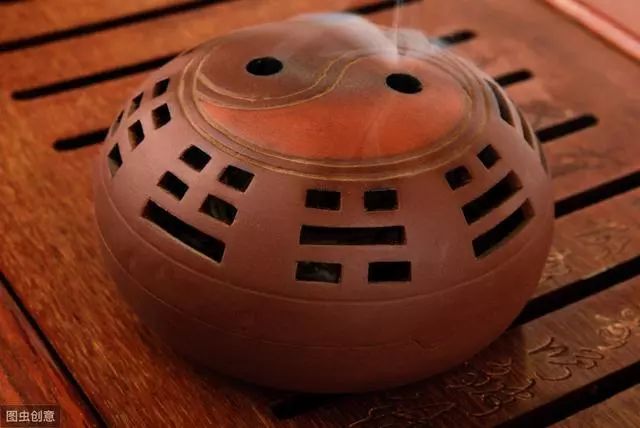
For example, why do some people lose their appetite, experience burping, or even have stomach bloating and pain when they are angry or depressed?
Why do some people feel irritable and anxious when they are sick, often showing symptoms of Spleen and Stomach deficiency?
Because Wood restrains Earth, as stated in the “Huangdi Neijing”: “Earth benefits from Wood.” When the Liver qi is smooth and flowing, the Spleen and Stomach can function properly, and digestion is healthy. However, anger, depression, and anxiety can easily lead to Liver qi stagnation, weakening or losing the Liver’s ability to smooth and regulate, which in turn affects the Spleen’s ability to digest food, leading to indigestion. Anger after eating can cause Liver qi stagnation internally, similarly affecting digestion and absorption.
Therefore, many health practitioners advocate: do not be angry after eating, and do not eat after being angry.
The application of the mutual generation and mutual restraint of the five organs in disease prevention and treatment is now emphasized in the concept of “preventing disease before it occurs.” The “Jin Kui Yao Lue” states: “If you see a disease of the Liver, know that it can affect the Spleen, and you should first strengthen the Spleen.” This means that if there is a Liver disease, one should recognize that it can easily affect the Spleen, and while treating the Liver, one should first tonify the Spleen. Since Wood restrains Earth, Liver disease can covertly harm the Spleen. A disease in one organ can influence others.
This reflects the concept of “preventing disease before it occurs,” aiming to ensure that the Spleen’s righteous qi is robust and not invaded. Conversely, if one sees a Liver disease and does not know to tonify the Spleen, but only treats the Liver, this lacks a holistic treatment approach and will naturally not yield satisfactory results. Since Wood generates Fire, and the Liver is the mother of the Heart, Liver disease can also affect the Heart. This is true for other organ diseases as well.
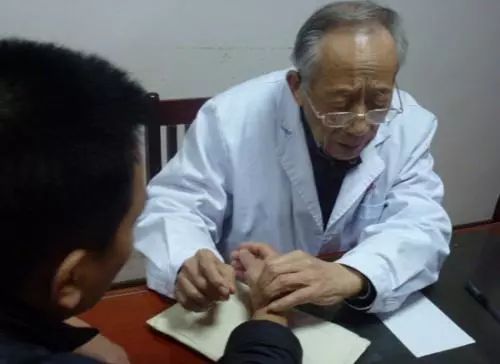
According to the mutual generation relationship of the five elements, TCM has the treatment principle of “tonifying the mother and draining the child,” meaning “if deficient, tonify the mother; if excessive, drain the child.” For example, if the Liver is deficient, tonify the Kidney, as Water generates Wood, and the Kidney is the mother of the Liver. Thus, tonifying Kidney Water can nourish Liver Wood, a method known in TCM as “Zhi Shui Han Mu Fa” (Nourishing Water to Support Wood), which is used to nourish Kidney Yin to support Liver Yin, suitable for conditions of Kidney Yin deficiency and insufficient Liver Yin. Since Liver and Kidney Yin deficiency is the fundamental pathogenesis of diabetes, hypertension, and stroke, these conditions require simultaneous treatment of the Liver and Kidney. Conversely, if the Liver is excessive, one should drain the Heart, as Wood generates Fire, and the Heart is the child of the Liver, so draining Heart Fire helps to drain Liver Wood.
For instance, a person with excessive Liver Fire should especially pay attention to maintaining a calm mood and can regularly consume bitter melon to reduce Heart Fire.
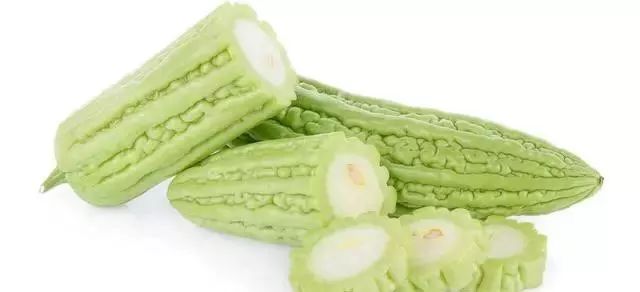
According to the restraint relationship, TCM has the treatment principle of “supporting the weak and restraining the strong,” meaning to drain the strong one that restrains and to tonify the weak one that is being restrained. For example, if the Liver is restraining the Spleen, and the Liver qi is excessive, it must be drained, while the Spleen qi is deficient and must be tonified. This balance of draining and tonifying allows for harmony of Yin and Yang, leading to health.
In summary, in the holistic view of TCM, a person is a unified entity centered around the Heart, with the five organs as the core. Although each organ has its own responsibilities, none can exist independently of the others.

